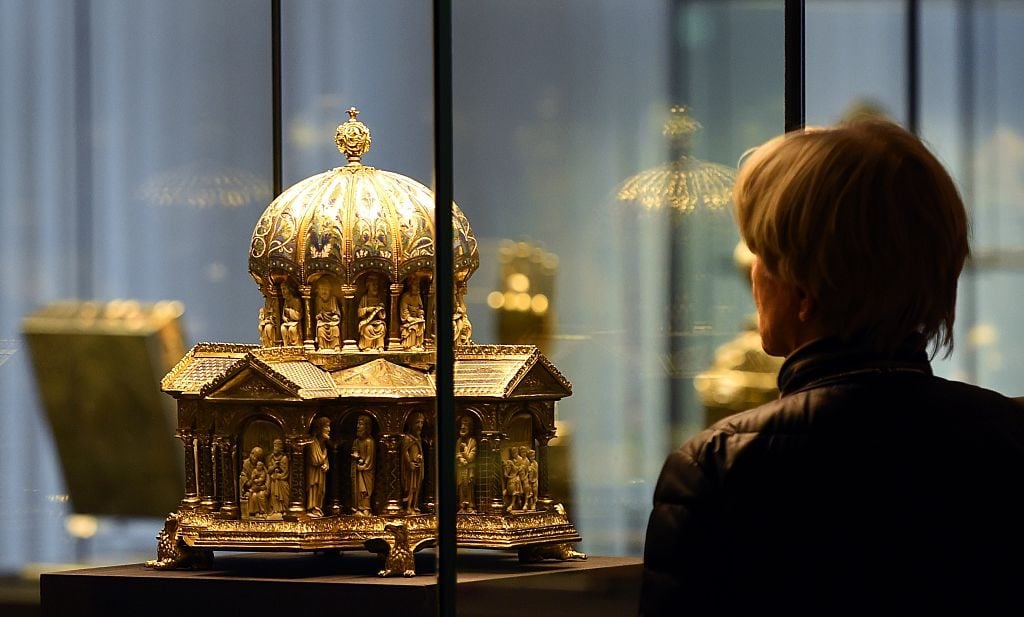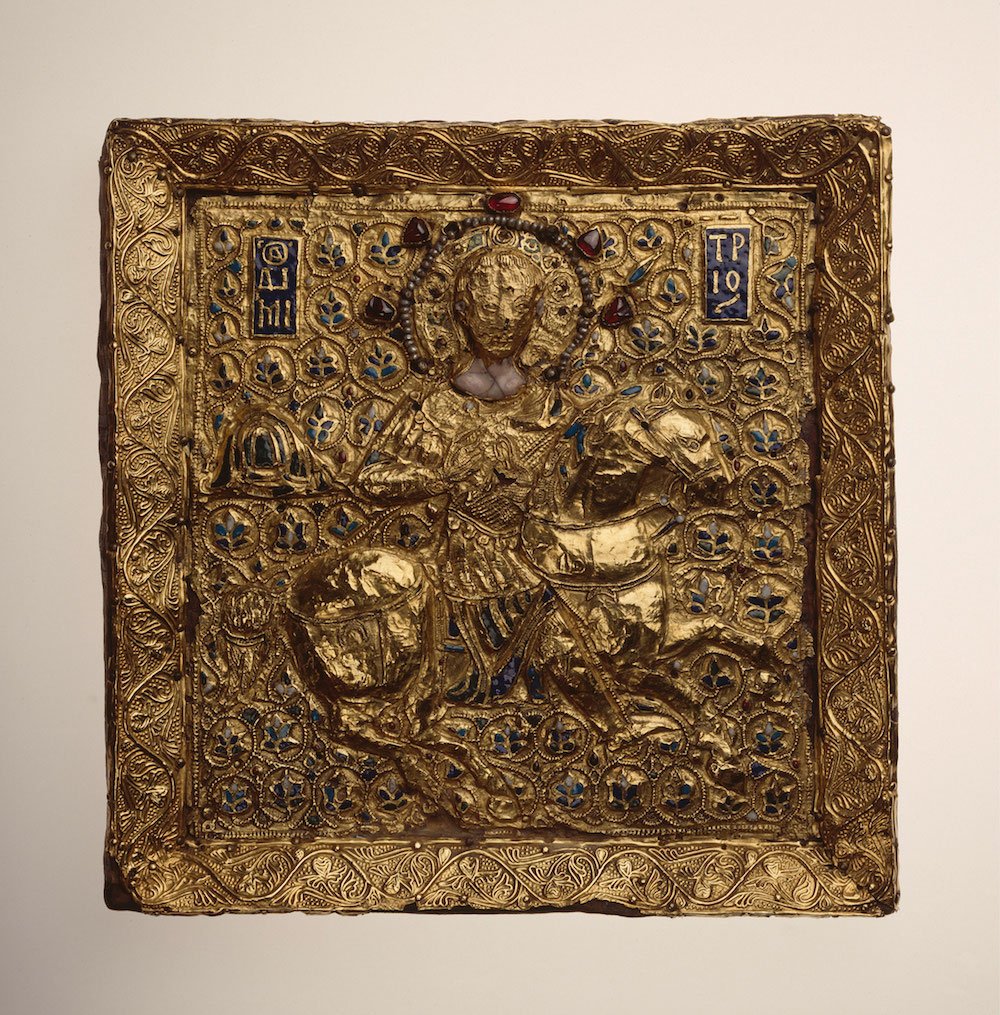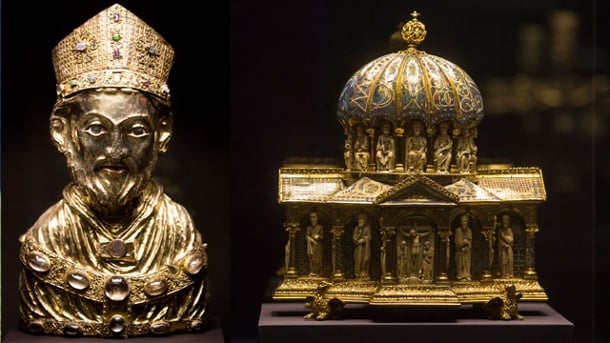Law & Politics
Battle Over $250 Million Guelph Treasure Rages on as Germany Files Motion to Dismiss U.S. Lawsuit
Germany insists the treasure wasn't sold under duress.

Germany insists the treasure wasn't sold under duress.

Henri Neuendorf

The protracted seven year battle over the restitution of the Guelph Treasure is entering yet a new phase after the Prussian Cultural Heritage Foundation filed a motion on Thursday to dismiss the U.S. lawsuit brought by the heirs of the Nazi-era Jewish art dealers, who claim their ancestors sold the treasure trove under duress.
In February 2015, the Prussian Cultural Heritage Foundation, which manages Berlin’s art collections, and the Federal Republic of Germany were named in the lawsuit seeking restitution of the collection of the medieval relics.
The 82-piece ecclesiastical art collection was bought in 1929 by a consortium of four Jewish art dealers—consisting of Zacharias Hackenbroch, Isaac Rosenbaum, Saemy Rosenberg, and Julius Falk Goldschmidt—for 7.5 million Reichsmark.
However, the consortium’s plan to flip the collection for a profit was quickly undone by the Great Depression.

Golden icon with Demetrios.
Photo: bpk/Kunstgewerbemuseum SMB via Bloomberg
The dealers managed to sell 40 pieces in five years for 2.5 million Reichsmark, eventually selling the remaining 42 pieces to the Prussian state in 1935 for 4.25 million Reichsmark, at an approximate 10 percent loss on their initial investment. Following the increasingly repressive treatment of Jews in Nazi Germany, culminating in the passage of the Nuremberg Laws in 1935, three of the four dealers fled.
The artworks have been part of the Prussian state collection ever since, and are currently on display at Berlin’s Museum of Decorative Arts. Today, the treasure is worth an estimated $250 million.
In 2008, descendants of the consortium members filed a restitution claim against the Prussian Cultural Heritage Foundation. After years of legal wrangling, the commission ruled that the consortium had been paid a fair market price, citing correspondence between the dealers celebrating the sale and their repeated attempts to sell the collection.
In 2009, the heirs filed another restitution case, this time in the U.S. Nicholas O’Donnell, the attorney representing the heirs, told Bloomberg: “Look, in our view, there isn’t any question that this was a fair market transaction. It’s absurd to argue that they had anything close to bargaining power.”

The collection is estimated to be worth $250 million.
Photo: AP via T-Online
The president of the Prussian Cultural Heritage Foundation Hermann Parzinger, however, claims that they have met their obligations. He pointed out that the foundation has dealt with over 50 restitution claims in the past 20 years, and returned the works in question 98 percent of the time.
“The basic point is that no non-Jewish art seller could have gotten a better price when you see the situation at the time,” Parzinger stressed.
The heirs now have a month to oppose to the motion to dismiss, and after the Prussian Heritage Foundation has replied, a judge will decide whether the case will go forward.